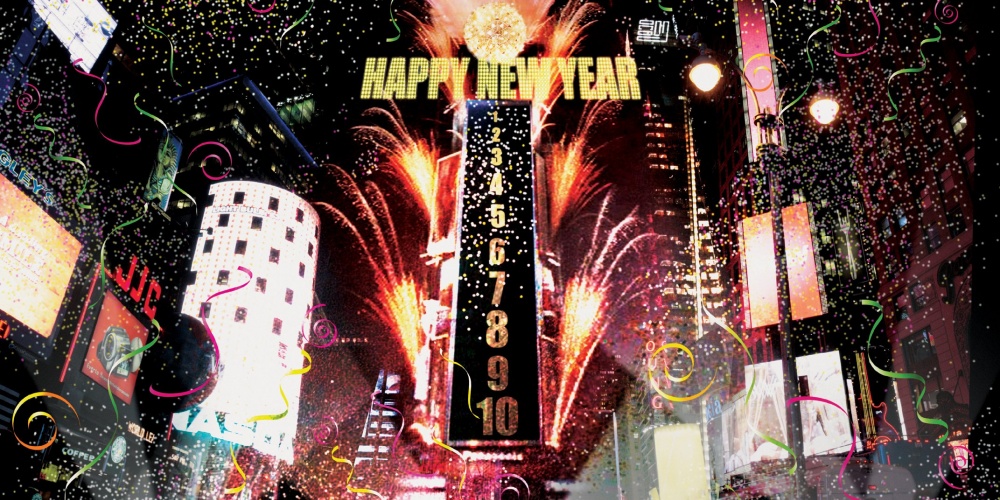
Jews celebrate the New Year on the first of Tishrei with a solemn seriousness indicating the precarious nature of life. In contrast, the non-Jewish world celebrates New Years Day on January 1 with parties, focusing on joy and the fun side of life. While religious Jews tend to (in theory) ignore the secular New Year, this need not be so.
First, on a practical level, we do lead the basic contours of our lives according to the secular calendar. Ask a Jew the day of the month, and he will easily tell you the answer according to the secular calendar. Ask him to do the same regarding the Hebrew date, and chances are he will have to think a bit—and even so, may get it wrong. Even such expressions as “Yom Tov is early this year” reflect the central role the secular calendar plays in our daily lives.
Our personal fiscal year begins on January 1. Halachic authorities have noted this fact in ruling that, in calculating one’s tzedakah obligations, we may use the income earned in the secular year to determine the base from which we must give tzedakah. (I actually have a 1040 tzedakah form that takes a regular US 1040 individual tax form and adds the necessary adjustments to calculate our income for tzedakah purposes. I am unaware of such a form for a Canadian T1 – but I digress.)
Working with a secular calendar is not some new aspect of modernity. The first mishnah in tractate Rosh Hashanah notes that there are “four New Years”; the first one of these is the first of Nissan, the New Year for kings. Regardless of when during the year a king was appointed, on the first of Nissan, his second year began. The practical import of this convention is that in the ancient world, documents were dated according the year of the rule of monarch. Failure to date a document properly rendered it invalid, and one could not collect payment on a loan if the document had the wrong Year of the King as its date.
January 1 is marked by the tradition of New Year’s resolutions, which parallels kabalah le’atid, acceptance for the future, the final and most important step in the teshuva process. Without resolving not to sin again, our fasting on Yom Kippur is little more than empty ritual. While we associate such “resolutions” with the aseret yemi teshuva, they are appropriate at any point in the year. Further, although they are generally neglected today, our tradition suggests special prayers be said on the last day of every month, which is known as Yom Kippur katan.
One of the rituals performed as the old year comes to an end is a retrospective of the year gone by and predictions for the future. We get a review of the year’s major events, be they in sports, entertainment, or finance. Last year’s predictions are measured against actual events – once again demonstrating man’s inability to predict the future and his unwillingness to stop trying.
Review of the past and looking forward to the future are key components of the teshuva process, and something I think our community and institutions don’t do enough. The common practice of newspapers listing notables that have departed this world in the past year is a beautiful idea. Our Sages teach that the “death of the righteous brings atonement”. Recalling their lives is meant to inspire us to live up to our potential.
The Jewish calendar is centered around the months of Nissan and Tishrei. While the former celebrates Jewish nationhood, the latter celebrates the creation of man – including non-Jewish man. It is instructive that the “Jewish” New Year (Nissan is the first month of the Hebrew calendar) occurs in the spring, when optimism and growth are in the air. The New Year of the creation (and judgment) of man is in the fall, when days are getting shorter and the earth ceases to bring forth produce. While man is destined to death and decline, the Jewish people are indestructible. Interestingly, today the non-Jewish world celebrates New Year’s in the dead of winter, and a new day begins in the middle of the night.
The Shulchan Aruch allows (encourages?) us to send gifts to those celebrating the New Year – maintaining friendly relations with the non-Jewish world around us is most important. Interestingly, such a ruling was promulgated even though the celebrants were idolaters. In today’s society where—for a whole host of reasons—we do not consider the non-Jews in our midst as idolaters, how much more it becomes imperative that we recognize that, even if we do not celebrate the New Year, those with whom we interact often do. Happy New Year!

